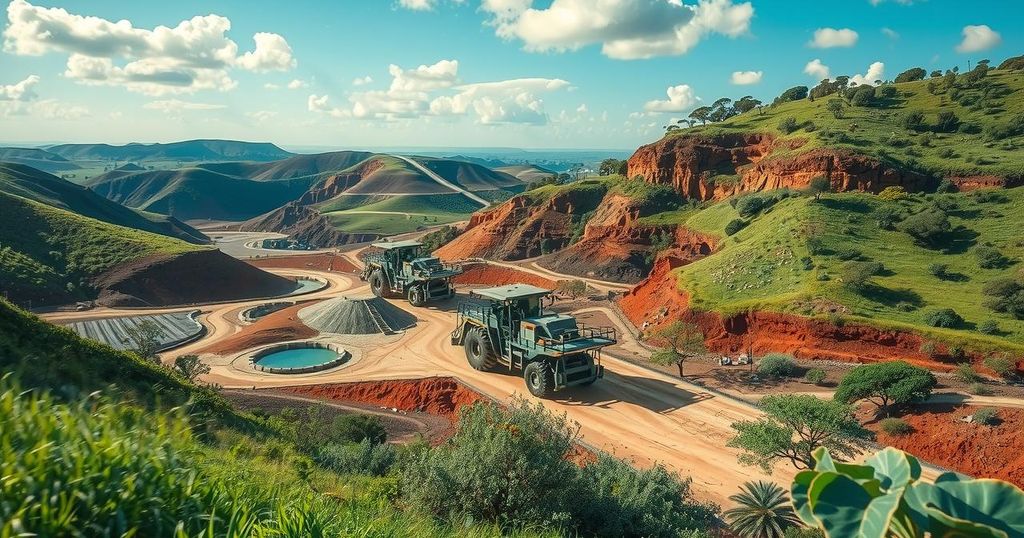Zimbabwe to Ban Export of Lithium Concentrates by January 2027
Zimbabwe is set to ban the export of lithium concentrates beginning January 2027, compelling foreign mining companies to establish processing facilities domestically. The government previously banned unprocessed lithium ore exports in 2022, encouraging enhanced local mineral value through processing. Mines Minister Winston Chitando urged sector players to invest in lithium sulphate production or engage in toll treatment agreements in anticipation of the ban.
In a significant move, Zimbabwe has announced a ban on the export of lithium concentrates set to take effect in January 2027. This decision is aimed at compelling foreign mining companies to set up processing and refining operations within the country. Such efforts follow Zimbabwe’s previous ban on unprocessed lithium ore exports back in 2022, a policy shift designed to elevate the value of its mineral resources.
The country’s Minister of Mines, Winston Chitando, addressed the media after the cabinet meeting, outlining that only lithium sulphates, which represent a higher level of processing, will be allowed for export after the ban. According to him, key lithium producers like Bikita and Prospect Lithium Zimbabwe are currently working to establish lithium sulphate production plants. These facilities will transition raw lithium concentrates into lithium sulphate, which has critical applications in battery manufacturing.
Chitando emphasized the importance of enhancing lithium production capabilities by encouraging investment in these upgrading facilities. Doing so, he noted, will create jobs and significantly boost local revenues as Zimbabwe capitalizes on its abundant lithium resources. He stressed the need for lithium sector stakeholders to either invest in such facilities or enter toll treatment agreements prior to the 2027 ban, highlighting the collaborative effort required to prepare for this transition.
The emphasis on local processing aligns with a broader trend across Africa, where nations are urging foreign mining firms to contribute greater value to domestic economies. This is perceived as a path not only toward economic empowerment but also toward reducing reliance on raw material exports, making the continent’s resources more beneficial for its citizens.
With this upcoming ban, Zimbabwe aims to fortify its position as a leader in the global lithium market and maximize the economic benefits derived from its rich deposits. As the date approaches, industry players will need to adapt swiftly to comply with new regulations, or risk losing a crucial export opportunity.
The lithium market is watching closely, as these regulatory changes could shape the future of lithium production not just in Zimbabwe but throughout the African continent.
In summary, Zimbabwe’s decision to prohibit lithium concentrate exports starting January 2027 signifies a push towards enhancing domestic processing capabilities. By prioritizing local production and value addition, the government aims to create jobs and boost revenue from its significant lithium reserves, a resource that holds promise for various high-demand applications, particularly in battery manufacturing. This policy reflects a growing trend in Africa’s mining sector towards maximizing local economic benefits from mineral resources.
Original Source: www.newzimbabwe.com




Post Comment